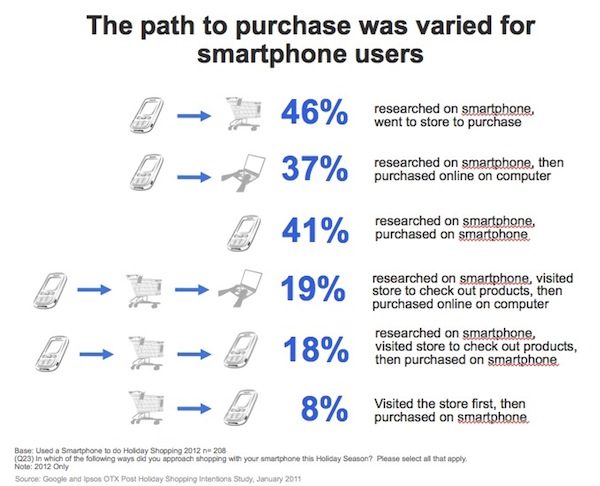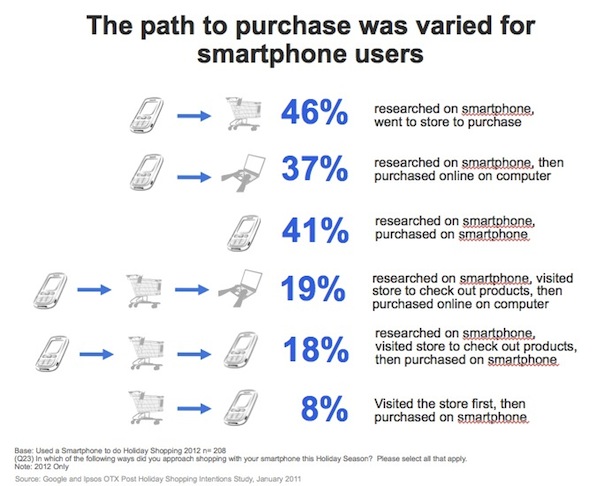Secure your place at the Digiday Publishing Summit in Vail, March 23-25

Does mobile drive shopping? Well, it depends.
According to research Google and Ipsos conducted over the 2011 holiday period, smartphone devices play a role at different parts of consumers’ paths to purchase, but they do so in different ways for different people.
For example, 41 percent of those who used their mobile phones to help with shopping said they purchase directly from the device itself, while 37 percent claimed to have researched on a phone before purchasing on a desktop. Meanwhile, 46 percent of respondents said they’ve researched items on a smartphone before going in the store to buy, and, interestingly, 19 percent have researched products both on a smartphone and in-store before purchasing online.
An interesting point to note from the 600-person survey is the number of users that went in-store to research but opted to purchase online instead. This likely reflects the cheaper price-points often offered online, but it suggests consumers still like to see products in person before committing to a purchase.
More in Media

How creator talent agencies are evolving into multi-platform operators
The legacy agency model is being re-built from the ground up to better serve the maturing creator economy – here’s what that looks like.

Why more brands are rethinking influencer marketing with gamified micro-creator programs
Brands like Urban Outfitters and American Eagle are embracing a new, micro-creator-focused approach to influencer marketing. Why now?

WTF is pay per ‘demonstrated’ value in AI content licensing?
Publishers and tech companies are developing a “pay by demonstrated value” model in AI content licensing that ties compensation to usage.






